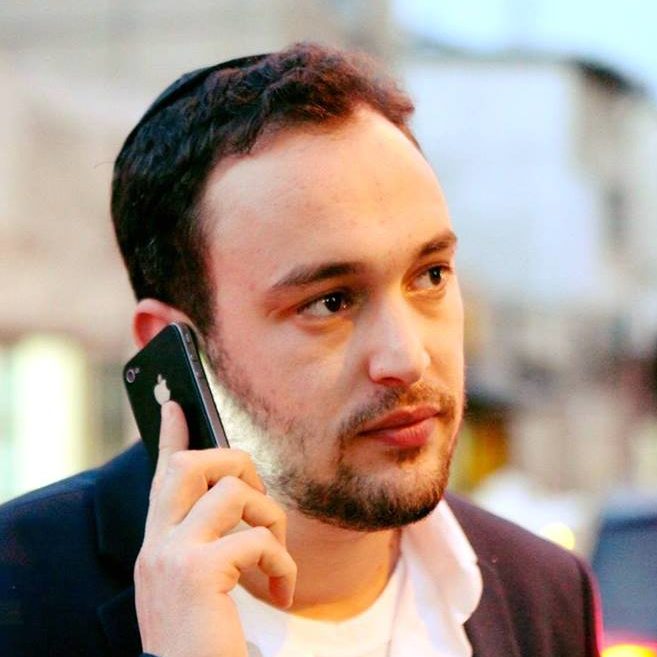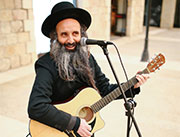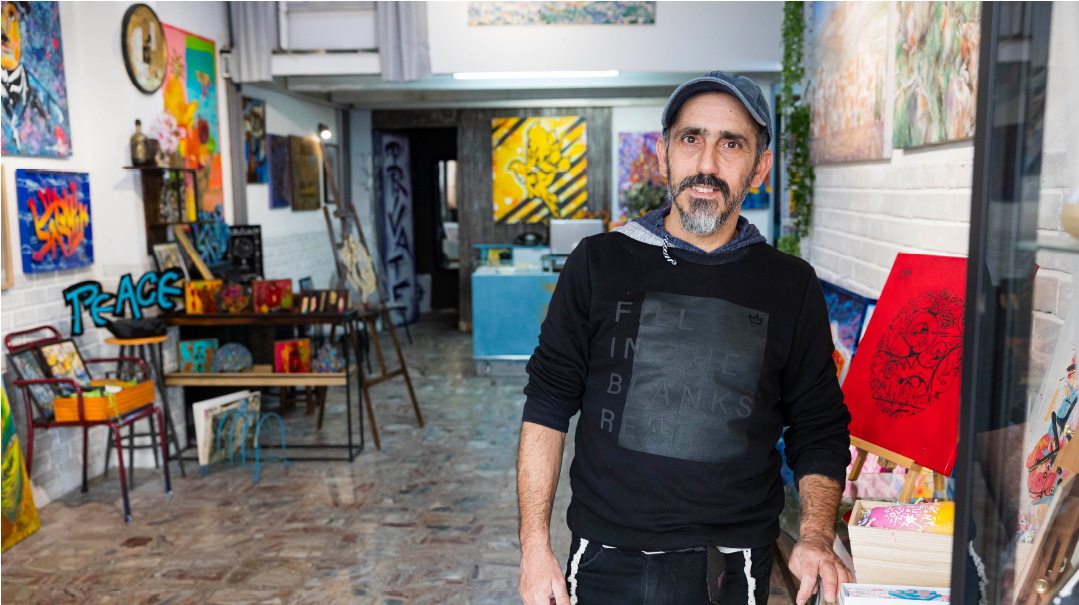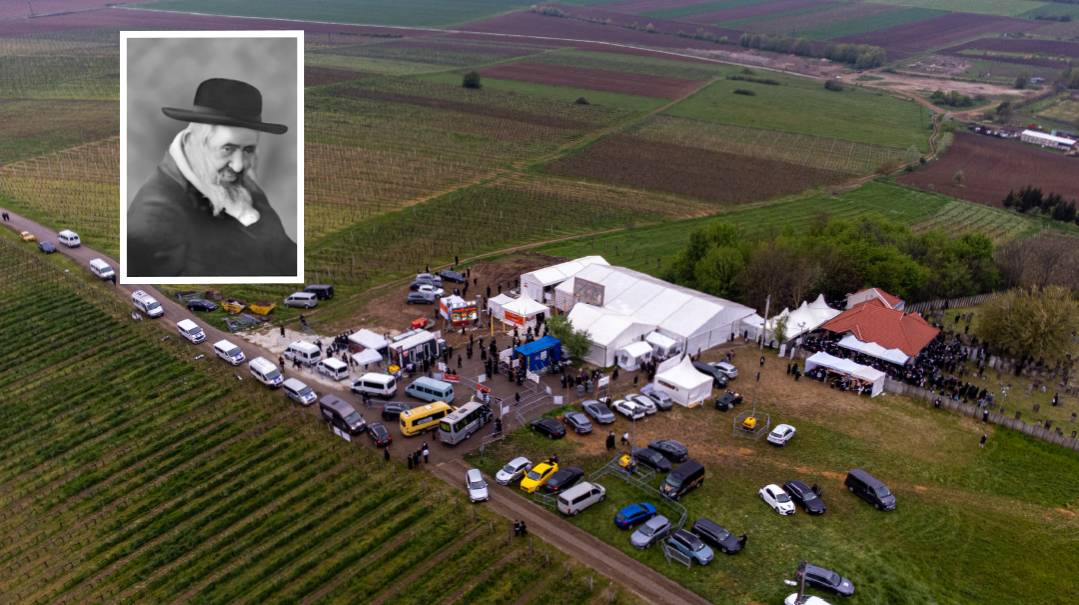Easy Street


SONG OF THE SOUL According to Sicarel all sorts of people stop to hear him perform from chareidim to those who know nothing about Torah. Non-Jews will also stop and listen. “Music is a universal language” he says. “It reaches everyone” (Photos: David Mor)
T he Mamilla Mall which connects several five-star hotels to the Old City’s Jaffa Gate has become one of Jerusalem’s most popular venues for shopping dining and just strolling about and taking in the vibrant scene. On many days it’s the site of an unexpected spiritual encounter as well — at least for those who follow the haunting music to its source: A Yerushalmi-garbed Yid who plays the guitar while singing Jewish songs that create a holy yearning in the soul.
Those who work in the mall know him well; they’re used to seeing him standing in the same spot rain or shine playing for hours. Like the lampposts at the street corners or the electricity poles he has become a permanent fixture.
But for those who take a closer look the face of this musician with the soft velvety voice and somewhat forlorn look in his eyes seems vaguely familiar. And so it should because not so long ago Yosef Sicarel was a well-known Israeli performer.
This isn’t a hard-luck tale though. Instead it’s the story of a man who took a different path gleaning invaluable insights along the way while reaching out to others with light and love.
Music fans might remember one of Sicarel’s earlier gigs when he was a member of the chassidic Hopaleh trio. The three gifted musicians — actors Ofer Halevi and Shlomi Zim were the other two performers — were baalei teshuvah who found their way back to Torah life while attending Arachim seminars during the late 1990s. For more than a decade they performed at hundreds of Arachim seminars inspiring audiences and proving that top-quality music could be found in the ultra-Orthodox community.
The trio broke up in 2005 but got back together in 2009 and still perform together today. But as new stars took the front stage in the Torah community they too began to branch out independently into other fields of frum entertainment.
“If you had told me five years ago that one day I would be singing in the street I would have responded by saying that you yourself should go and do it ” Sicarel says with a laugh. “But this is how Hashem turned things around and I go along with His plans. I’m used to performing on a stage so it’s not a problem for me to stand in the middle of the street and sing while everyone looks on. There is a great advantage to being a street musician. And doing outreach here is much more powerful and dynamic impacting many more people. And besides I need to make a living don’t I?”
I Had Everything
Sicarel was born 53 years ago to a nonreligious family although they did keep a bit of tradition. They lived in Shikun Hei in Be’er Sheva where says Sicarel life was full of “action.”

“There is a great advantage to being a street musician. And doing outreach here is much more powerful and dynamic impacting many more people...”
“Let’s say I wasn’t the best-behaved child in town” he reminisces. “I wasn’t exactly fond of school. I was probably mildly hyperactive which motivated me to turn to music as an outlet for my energies. One of my neighbors unofficially taught me how to play the guitar and I continued practicing on my own. I wasn’t a musical prodigy nor did I ever even become a top professional artist. But I sing and play well enough to entertain my audience.”
After his army service Sicarel moved to Tel Aviv the center of Israeli theatre where he soon found work. He would eventually take part in some of that era’s most popular productions working with the best of Israel’s actors some of whom would eventually do teshuvah like himself.
“Israel’s best actors and artists had found their way into Torah life ” he comments. “Uri Zohar Shuli Rand Ofer Halevi — they are top-level artists by any international standard. They all found the truth far away from the limelight. Do you know why? Because when one has everything he really doesn’t have anything. I was consumed by the same feelings. I had everything a person could wish for: I had money work fame. But inside I felt a terrible void. My heart was burning. Everyone around me was smiling looking beautiful. But I felt the emptiness. I wanted to know what was really happening inside why I wasn’t truly happy.”
After three years in Tel Aviv Sicarel knew he had to look elsewhere for answers. “One of my best friends Shlomi Zim told me he had started working with a director by the name of Eijo Leibovitz who had given him a book in which one could find answers to any question about the meaning and purpose of life. I asked to borrow the book. I would ask myself all kinds of questions sometimes even silly ones and then open the book to see if indeed I could find answers there. I was shocked to realize that yes in that book I could find the answers to all my questions…” (Excerpted from Mishpacha Issue 656)
Oops! We could not locate your form.







